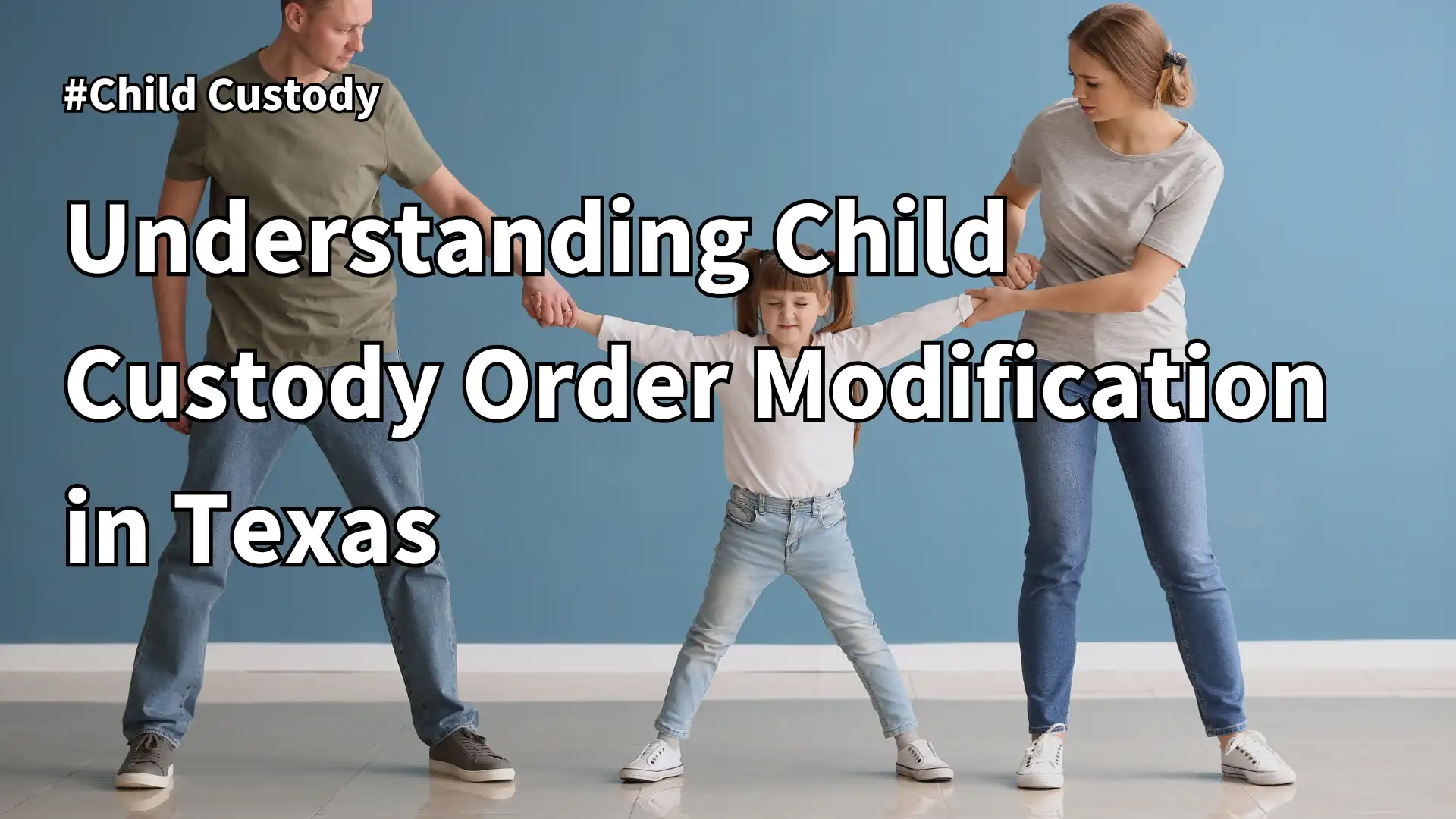 Can a custody order be changed in Texas? The state allows custody order modification in two situations:
Can a custody order be changed in Texas? The state allows custody order modification in two situations:
- When there is a substantial change in circumstances
- When the child is at least twelve years old and has requested a change in custody.
Texas courts will only modify a child’s full-custody order if the change is in the child’s best interest. Child custody agreement modifications are difficult to obtain, but an experienced lawyer can explain how to change a child custody agreement and guide you through the process.
Reasons for Modifying a Visitation Order
People ask a court to modify a custody order because something has changed. For example, if your ex’s new job limits their time with your child, or your child expresses a desire to live with you, it may be time to revisit the custody arrangement. This could sometimes mean transitioning from temporary to permanent custody, which better reflects your child’s needs and best interests.
Reasons to modify a custody order include:
- A change in the custodial parent’s employment situation
- Relocation out of state by either parent
- A change in the child’s medical, developmental, or educational needs
- A clear statement by the child that they would prefer a change in custody
- Substance abuse issues
- Domestic violence issues
- Neglect or criminal behavior
- Excessive conflict between the parents
- Scheduling changes that make the existing parenting plan outdated
- Violation of the existing custody order
When Do Courts Allow Custody Changes?
When do courts allow custody changes? Under Texas Family Law, any change to a custody order must be in the child’s best interest. In addition:
- The circumstances of the child or the custodial parent must have materially and substantially changed, or
- The child must be at least 12 years old and must have expressed a preference for a change of custody, or
- The custodial parent must have voluntarily given up care of the child to someone else for at least six months.
You must demonstrate that these terms have been met to obtain court approval for a custody modification.
How to Prove a Custody Modification is Needed
What evidence is needed for a custody change? The first and most important point you must prove is that the change in custody is in the child’s best interest. Texas courts will assume that it is not in the child’s best interest to live with a parent who has a history of domestic violence or sexual abuse. Arrest records, court records, or a protective order can demonstrate that your ex has a history of abuse.
Other factors used to determine the best interest of the child include:
- The child’s preferences
- The parenting abilities of both parents
- The parents’ plans for the child
- The stability of each household
- Any acts by either parent indicating an improper relationship
- Any programs available to help either parent
Next, you must demonstrate that there has been a substantial and material change in circumstances or that your child has preferred a change. If your child wants the custody arrangement to change, they can express that preference in court. If you’re seeking to prove a change in circumstances, you must gather evidence to prove that change, such as:
- A journal showing that your actual parenting time does not match the existing custody plan
- Records showing that a court had to take steps to enforce the custody plan
- Communications from your ex demonstrating a change in circumstances, such as a text telling you about a new job or a relocation.
- Statements from your child’s doctor, teachers, or other eyewitnesses
Anything that can prove a change in circumstances can help you convince the court to order a custody change.
How to Request a Custody Order Modification
Not all child custody order modifications are contested. Sometimes, both parents agree that the order needs to be modified. In that case, you can file a Petition in Suit Affecting the Parent-Child Relationship, followed by an Order in Suit Affecting the Parent-Child Relationship in which you list the new terms both parents have agreed on. Finally, you must file an Affidavit for Prove-Up of Agreed SAPCR, a notarized form in which both parents formally agree to the new terms.
Filing for child custody modification is more challenging when the change is contested. If the other parent doesn’t agree to a change in the custody order, you must request a hearing so the court can decide the issue. Having a lawyer represent you at this hearing is a good idea.
Please read more about types of custody here: What Are the Three Types of Custody Conservatorship in Texas?
Emergency Custody Order Modification

- Give you emergency custody of your child
- Order the other parent to pay child support
- Restrain the other parent from disturbing the peace of your child
- Prohibit the other parent from taking your child out of the area
A lawyer can help you file a petition for emergency custody and a temporary restraining order.
Call a Texas Child Custody Lawyer Today
How long does a custody modification take? In Texas, a child custody modification order can take as little as a few weeks or as long as several months. A Texas family law attorney can complete the necessary forms, file them correctly, and gather the evidence needed to convince a court to grant the modification.
Smith & Bledsoe Family Law is an award-winning team of lawyers that fights hard to help people like you get the outcomes they deserve. We aim to serve as your safe anchor in the courtroom, walking you through every step and doing everything we can to help you obtain the custody modification you want.
Our team is here to help you understand your rights and take the first step toward securing the necessary benefits. In Austin, Texas, we are known for taking on the difficult cases that many other firms turn down. Call Smith & Bledsoe Family Law at (512) 714-2877 or contact us online today.
Related Post
Steps to Strengthen Your Custody Case in Court
How Does Joint Custody Work in Austin, Texas?
Interstate Custody Battles: How UCCJEA Determines Jurisdiction